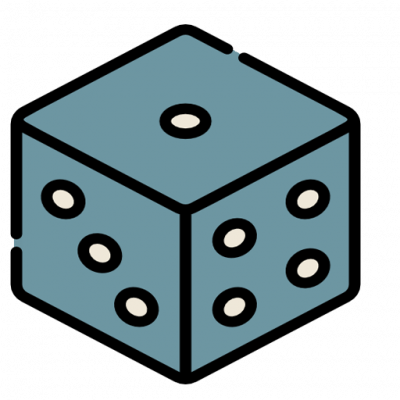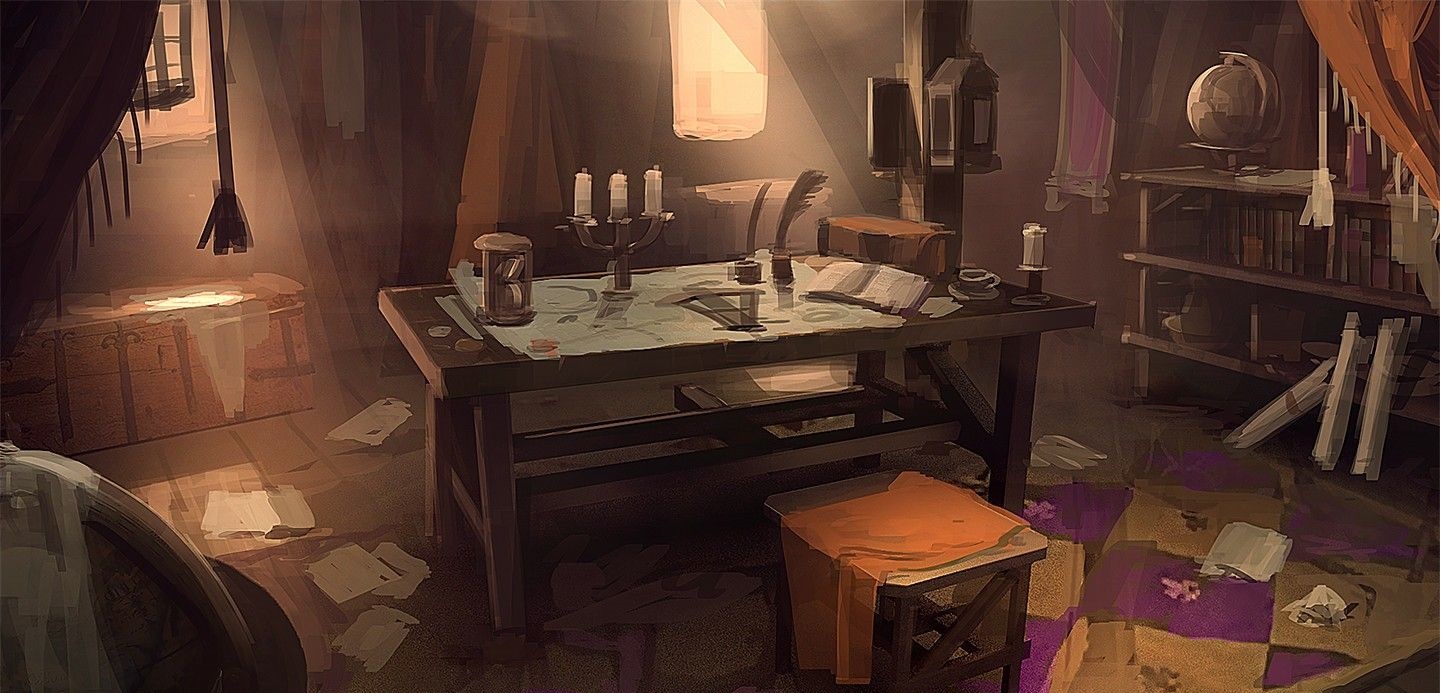Below is a list of house rules/clarifications used at the "table" that you may want to know. Note that there's no need to immediately memorize these rules upon joining the table as they will be learned through playing the game. Should you need any House Rules further explained, talk to the DM.
Character Creation House Rules:
Alternate Array. When determining your starting ability scores, in place of using the Standard Array, you will use an alternate array of:
[17, 15, 14, 12, 10, 8]
Ability Score Limitations. At first level, when determining your starting ability scores, the highest score you may have in any given score is 17 after racial modifiers and feats. If your chosen race's given Ability Score Improvements would otherwise increase an ability score beyond this limit, you may instead choose to increase another ability score of your choice that isn't already receiving a bonus beyond this limit. This limitation of ability scores is removed after character creation at first level.
Alternate Ability Score Improvements. When reaching a level where you would gain an Ability Score Improvement, you instead gain one of the following boons:
- One ability score of your choice increases by 1 and you gain one feat of your choice. If your chosen feat would increase an ability score, you cannot choose that ability score to benefit from this increase.
- One ability score of your choice increases by 2 and one other ability score of your choice increases by 1. Alternatively, you may choose three ability scores to increase by 1.
As normal, when selecting one of the boons above, you cannot increase an ability score above 20 unless otherwise stated.
Ability Score Maximums. When increasing an Ability Score to 20, choose one skill in which you have proficiency that uses the given Ability Score. You gain expertise with that skill, meaning your proficiency bonus is doubled for any ability check you make. The skill you choose must be one that isn't already benefiting from a feature, such as Expertise, that doubles your proficiency bonus.
When increasing your Constitution Score (An ability score with no associated skills) to 20, you instead gain proficiency in Constitution saving throws. If you already have proficiency in Constitution saving throws, you instead increase your hit point maximum by an additional amount equal to your level. Whenever you gain a level thereafter, your hit point maximum increases by an additional 1 hit point.
Expert Intellect. You gain the following benefits based on your intelligence modifier:
| Intelligence Modifier | Mechanical Boon
| | +1 |
Gain proficiency in 1 additional instrument or gaming set. |
| +2 |
Gain proficiency in 1 additional language. |
| +3 |
Gain proficiency in 1 additional tool kit. |
| +4 |
Gain proficiency in 1 additional skill. |
| +5 |
See the Ability Score Maximums ruling above. |
First Feat. At first level, you gain one feat of your choice.
Healthy Heroes.When rolling for health past level 1, if your roll is below the average (ie 4 on a D6, 5 on a D8, etc), you may take the average instead.
Language Fluencies. In order to better emulate the intricacies of language and culture, this alternate rules set may be instated for language proficiencies:
- Fluency Level. In place of automatically being proficient in a given language, one's fluency in any language exists on a percentage scale from 0 to 100. Be sure to mark the percentage tied to each language you know separately. This number represents your Fluency Level.
- Language Checks. When interacting with a language that you are not 100% fluent in, roll 1d100. When rolling below your Fluency Level, you are able to successfully translate a given interaction whether it be a conversation, text, etc.
- Languages Known. At 1st level, your character may be 100% fluent in a number of languages equal to your Intelligence modifier (minimum of 1). It is recommended that one of these languages is Common. From here, place your additional language proficiencies in order from which you wish to be most fluent in to least fluent in. For each additional language you know, you lose 20% fluency in that language (minimum of 20%).
- For example, a 1st level character with 14 Intelligence may start with the following language proficiencies: Common, Dwarven, Elven, Gnomish, and Infernal. In this instance, they would start the game with two languages at 100% fluency (Common and Dwarven), whereas their leftover languages would be placed in order of their importance to the character and lose fluency as follows: Gnomish (80%), Elven (60%), Infernal (40%).
- Increasing Fluency. For each week that you spend regularly studying and/or practicing a given language, you may increase your Fluency Level by 5%. You may only increase one language in this way at a time.
Multiclassing. The optional multiclassing rules are not used as a simple mechanical effect, but rather as a narrative one. The boon that is multiclassing represents a shift within a character's arc as they focus their attention toward a new set of skills or abilities and therefore must be earned narratively or thematically by the character in question. At the end of the day, multiclassing is allowed at the DM's discretion.
Combat House Rules:
Attempted Actions. Some skill checks during combat are free to attempt, but, should you succeed, may require some of your action economy, at the DM's discretion. For example, if a player attempts to knock over a bookcase on their turn, they may have to make an Athletics check, costing their action on a success and nothing but their movement to the bookcase on a failure.
Deadly Saving Throws. The life of an adventurer is full of many highs and many lows. To emulate some of these lows, Death Saving Throws now abide by the following rules:
- Beyond the Veil. Death Saving Throws are made between the downed player and the DM. The results are not shared with the rest of the table.
- Exhaustive Recovery. Each time you recover from a state where you need to roll Death Saving Throws, you gain one level of exhaustion.
- Fight For Your Life. When you are knocked to 0 hit points and not outright killed, you may choose not to be knocked unconscious and are instead placed into a fugue state as you attempt to fight for your life. While in this state, you have disadvantage on all Death Saving Throws and may take only your action each turn. This action can be used to perform one of the following actions: Make one single-handed weapon attack, crawl up to 10 feet away, or cast a cantrip you know.
Exhaustive Spellcasting. When you are out of spell slots of 5th level or lower, you may use your bonus action to regain one spell slot of the given level, as you push your body to its limit in channeling this energy. At the end of the round, you gain one level of exhaustion per level of spell slot regained. Once you regain a spell slot in this way, can not do so again until you've finished a long rest.
Fumbled Attacks. When rolling a Natural 1 on melee attack rolls, the target of the attack may use their reaction to make a melee attack roll against the attacker.
Held Movement. When holding your action, you may choose to additionally hold up to half of your movement alongside said action.
Limited Flanking. When making a melee attack, if your opponent is threatened by a creature friendly to you, you gain a +2 to the roll.
Strategic Play. Instead of players rolling for Initiative separately, the party promotes one player to roll for the group while the DM rolls once for the opposing side. Whichever side wins this contested roll goes first in initiative. Instead of following any arbitrary order, players may choose when to take their turn and, after each player's turn, the DM takes a turn for an enemy of their choice and vice versa. The initiative order follows this pattern until one side has taken all of its turns, at which point the remaining creatures on the opposing side take their turns in their chosen order. This form of initiative is meant to provide the players with more flexibility while simultaneously providing a more seamless transition into and out of combat.
Quick Potions. When using a potion on yourself in combat, you can choose to do so with either an action or a bonus action. When using a bonus action, you roll the given die as normal, but when using an action you can instead take the maximum number of the given rolls. Using a potion on another is still a Standard Action and you must roll the given die as normal.
Condition House Rules:
Dazed. When you are dazed, the world slows around you as you attempt to catch up. On your turn, you may choose to move or take an Action, not both. Additionally, you cannot take a Bonus Action or Reactions.
Variant Exhaustion. The life of an adventurer is one of endless wonder, but such wonder can only go on for so long. As your adventures continue, you may gain Levels of Exhaustion as you push yourself further and further, abiding by the following rules:
- Levels of Exhaustion. Each time you succumb to an effect that would make you Exhausted, your Exhaustion Level increases, and if your Exhaustion Level exceeds 10, you die.
- Effects of Exhaustion. As long as your are Exhausted, you must subtract your Exhaustion Level from all attack rolls, ability checks, and saving throws. Additionally, whenever you force another creature to roll a saving throw, you must subtract your Exhaustion Level from your Save DC.
- Ending the Condition. Finishing a Long Rest removes 1 of your levels of exhaustion. When your exhaustion level reaches 0, you are no longer Exhausted.
Variant Frightened. When frightened of a given creature, you must choose your reaction to the triggering effect, given the circumstances, from the options list below:
- Fight. Despite the fear in your eyes, you've chosen to stand your ground and fight. The creature you are frightened of has advantage on attack rolls and saving throws against you and your abilities. Additionally, you have disadvantage on attack rolls against all creatures other than the one you are frightened of.
- Flight. As you are consumed by fear, your senses leave you and you are compelled to flee. You cannot move closer to the creature you are frightened of. Additionally, if the creature you are frightened of is within your line of sight, you must use your movement and action to run away, hide, or take cover. Once you have successfully broken line of sight, you may act as you wish, but must always aim to end your turn with that line of sight remaining broken or obscured.
- Freeze. Against your active willpower, your body freezes up in a moment of terror. Your speed is reduced to 5 feet and on your turn, you can take an action or a bonus action, but not both.
- Fawn. As your mind attempts to cope with the dangers before you, you attempt to appease such forces in order to save your own skin. For as long as you are frightened, you are also charmed by the same creature.
Variant Poisoned.
Non-Combat House Rules:
In a game defined by its combat system, the other pillars of play are often left lacking, if not completely ignored. Below is a list of house rules implemented to better codify the story outside of combat. These rules may be implemented for any number of reasons; to better fit the design of the setting, to inspire greater interest in your fellow player's scenes/moments, etc., and should not be abused as simply a source of power-gaming by any means.
A Story Of. During a long rest, one player may draw a playing card and tell a story based on the card drawn. Upon telling the story, everyone in the party gains inspiration. Each of the suits corresponds to a type of story as follows: The Suit of Hearts - A Story of Love, The Suit of Clubs - A Story of Loss, The Suit of Spades - A Story of Pain, and The Suit of Hearts - A Story of Gain.
I Know A Guy. Not every moment, nor interaction within your story has been predetermined. To emulate this, each player has a number of Contacts equal to their Charisma modifier (minimum of 1). At any point in the game, players may expend a Contact to create an NPC within the world that they believe their character would have a prior connection to. The player must then roll a Charisma check to determine the nature of their relationship.
Depending on the roll, the player then works with the DM in the moment to design an NPC that their character would know, exactly how they may be able to help, and what the costs of that help might run them. This ruling is meant to allow players to make up and introduce impromptu characters and has no correlation to any pre-existing NPCs within a character's background.
Inspired Heroes. In many games, Inspiration can often go forgotten or unused. To encourage a more dynamic use of the resource, the following rules are in place:
- Stacking Inspiration. Each player may have up to a total of three points of inspiration at a time.
- Inspiring Companions. The DM has many responsibilities and often may forget to hand out inspiration. To combat this, when players notice one of their party members having a moment deserving of inspiration, they may give it out in the DM's stead. As always, the DM's word is final and they may veto these moments if this rule is ever abused.
- Talkback Sessions. At the end of each session, the table will talk back through the session. One by one, each player will state their favorite thing overall, their favorite thing someone else did, and their favorite thing they did from the session before finally, the DM will do the same. For partaking in this talkback of the session, each player will gain inspiration for the start of the next session.
The Fading Spirit. If a character is dead, and a resurrection is attempted by a spell or spell effect with a casting time greater than 1 action, a resurrection ritual is initiated. Up to three creatures can offer to contribute to the ritual via a Contribution Skill Check. The DM asks them each to make a skill check based on their form of contribution, with the DC of the check adjusting to how helpful/impactful the DM feels the contribution would be.
For example, praying to the god of a devout, fallen character may require an Intelligence (Religion) check at an easy to medium difficulty, whereas loudly demanding the soul of the fallen to return from the aether may require a Charisma (Intimidation) check at a very hard or nearly impossible difficulty. Advantage and disadvantage can apply here based on how well-put or off-base, the offered contribution is.
The Silver Standard. Alyria is a world where wealth is hoarded by the top of society and gold is a symbol of excellence and splendor, not a mere trifle to be bartered with. To make this reality of the world more tangible, Silver Pieces are used as the foremost currency of the setting. The new placements of the world's various forms of currency is attached below:
- Copper Pieces. Copper is the lowest denomination of currency. A single copper piece is the smallest unit of value in Alyria, and keeps its value relative to most of D&D.
- Silver Pieces. Silver is the standard unit of trade. Most transactions, debts, and payments are calculated in silver. A single silver piece is worth one hundred copper pieces.
- Gold Pieces. Gold is a unit of value reserved for merchants, aristocrats, and the church. Gold pieces are rare in the circles you commonly run in, and unless you look presentable within society's upper crust, any gold pieces you own are likely to be assumed stolen. A single gold piece is worth one hundred silver pieces.
- Platinum Pieces. Platinum is the highest form of currency in the land. With a single platinum coin worth one hundred gold pieces, or one million copper pieces, platinum coins are the currency of the ultra-wealthy alone.
- Electrum Pieces. Electrum pieces are not minted by the Office of the Treasury, as there is little need for a coin denoting their value. Because of this, electrum has instead become a currency used exclusively within underground circles and criminal networks. Any electrum pieces found are more likely ancient relics of a time before the unification of the world's currencies. Perhaps the right source would be willing to exchange them for their value in silver, but most will view these coins with suspicion.
Resting House Rules:
Heroic though they might be, adventurers can’t spend every hour of the day in the thick of exploration, social interaction, and combat. They need rest—time to sleep and eat, tend their wounds, refresh their minds and spirits for spellcasting, and brace themselves for further adventure. With that said, you may rest in the following ways:
Take A Breather. With the speed at which an adventurer's life moves, sometimes you simply do not have the time to truly rest. At such times, you may Take A Breather before turning your attention back to the task at hand. You may Take A Breather by spending 5 minutes to quickly tend to your wounds and rally your companions. When resting in this way, you may expend one hit die and regain a number of hit points equal to the roll + your Constitution modifier. Once you have rested in this way, you can't do so again until you have finished a long rest.
Short Rest. A short rest is a period of downtime, at least 1 hour long, during which you do nothing more strenuous than eating, drinking, reading, and tending to wounds. At the end of a short rest, you can spend one or more Hit Dice, up to half your maximum number of Hit Dice.
For each Hit Die spent in this way, you roll the die and add your Constitution modifier to it, regaining a number of hit points equal to the total (minimum of 0). When rolling hit dice during a short rest, you may expend one hit die to reduce your exhaustion level by 1. Once you expend a hit die in this way, you must finish a long rest before you may do so again. You may benefit from the effects of a short rest up to three times within a span of 24 hours.
Long Rest. An adventurer's life often finds them resting in places that are less than favorable. A long rest is a period of extended downtime, at least 8 hours long, within such conditions— whether this means camping on the road, deep within the depths of a haunted wood, or wherever else your ventures may take you.
During a long rest, you must sleep for at least 6 hours and perform no more than 2 hours of light activity, such as reading, talking, eating, or standing watch. If the rest is interrupted more than an hour into its length, you instead gain the benefits of a short rest and must finish your long rest after said interruption to gain its benefits. At the end of a long rest, you regain a number of hit points up to half your hit point maximum as well as any Hit Dice you may have spent.
Full Rest. After days or even weeks of bearing the elements and facing deadly threats, finding your way to the day's end with a full belly and a comfortable place to rest makes all the difference. A full rest acts the same as a long rest, except for the fact that it must take place in a safe location that has provided basic amenities such as food, water, shelter, etc. When resting in this way, you instead regain all of your lost hit points.







